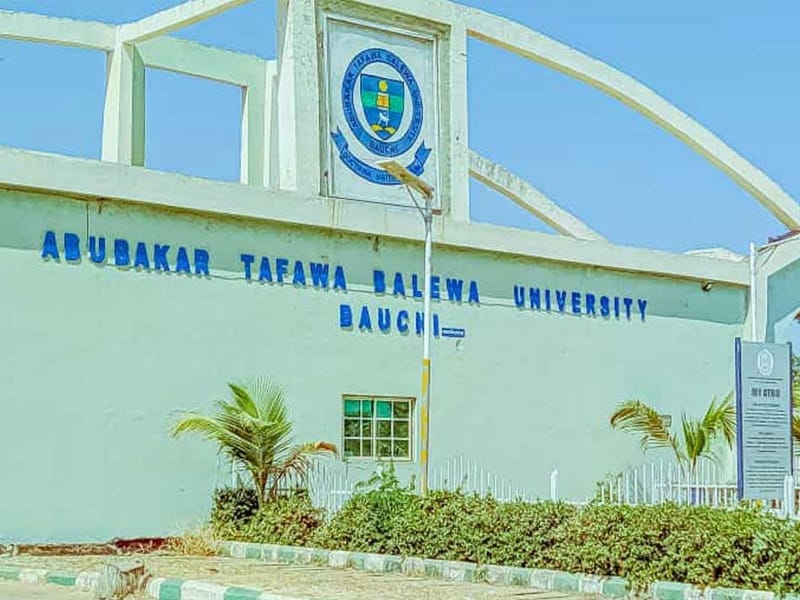In a significant development for Nigeria’s higher education landscape, the Senate has passed the second reading of a bill seeking to convert the Abubakar Tafawa Balewa University (ATBU), Bauchi, from a specialized university of technology into a conventional university. The proposed amendment, titled Abubakar Tafawa Balewa University Bauchi (Establishment) Act (Amendment) Bill, 2025 (SB 910), is sponsored by Senator Shehu Umar Buba, representing Bauchi South Senatorial District.
If passed into law, the amendment will allow ATBU to expand its academic offerings beyond science and technology disciplines, opening its doors to new faculties in arts, humanities, management, and social sciences. This marks a major transformation in the institution’s academic and operational structure.
Why the Bill Matters
According to the sponsor, Senator Shehu Umar Buba, the decision to propose this conversion is driven by the need to ensure equal access to diverse educational opportunities across the North-East region. He emphasized that Bauchi is the only state in the geopolitical zone without a conventional federal university — a gap the amendment seeks to address.
He noted that while ATBU has excelled as a leading technological institution since its establishment, it is time to allow the university to diversify and meet the broader educational, social, and developmental needs of Nigeria’s growing population.
The senator added that this change would not diminish ATBU’s strength in science and technology but rather complement and expand it, giving students a wider range of choices and fostering a multidisciplinary approach to learning and research.
A Look at ATBU’s Journey So Far
Founded in 1980, the Abubakar Tafawa Balewa University was established as a specialized university of technology with a mission to drive technological advancement and produce skilled manpower in engineering and applied sciences. Over the years, ATBU has earned a reputation as one of Nigeria’s leading institutions in the field of science, technology, and innovation.
With faculties that include Engineering, Environmental Technology, Management Technology, and Science, ATBU has significantly contributed to national development through research and training. However, under the new proposal, the university would evolve into a comprehensive institution, able to offer a much broader array of programmes to suit modern educational and socio-economic demands.
What the Amendment Seeks to Achieve
If enacted, the bill will officially authorize ATBU to establish and run new faculties, including:
- Faculty of Arts and Humanities
- Faculty of Social and Management Sciences
- Faculty of Law
- Faculty of Education
This expansion is expected to promote academic diversity, attract more students, create new employment opportunities, and foster innovation across multiple disciplines.
Furthermore, the move aligns with the federal government’s broader vision to increase access to quality tertiary education, reduce regional imbalance, and prepare Nigerian students for both technical and non-technical careers in an evolving global economy.
Senate’s Commitment to Educational Reform
During the plenary session, lawmakers expressed strong support for the proposed amendment, describing it as a progressive step toward balancing Nigeria’s educational system. Many senators highlighted that expanding ATBU’s academic focus would not only benefit Bauchi State but also serve students from other parts of the country seeking quality higher education.
The Senate President commended the intent of the bill and referred it to the Senate Committee on Tertiary Institutions and TETFUND for further legislative work. The committee is expected to review the bill, conduct stakeholder consultations, and present its report for the third reading and final passage.
Mixed Reactions from Stakeholders
While the bill has received commendations from many quarters, some alumni and educational stakeholders have voiced concerns. A section of the ATBU Alumni Association reportedly opposes the conversion, arguing that the university should retain its original identity as a specialized institution focused on technological advancement.
They fear that turning ATBU into a conventional university might dilute its core mandate and reduce the emphasis on science and technology, which are crucial to Nigeria’s industrial development. However, others argue that the transformation would help bridge academic gaps, encourage collaboration across disciplines, and reflect global trends in university evolution.
Broader Implications for the North-East
The North-East region currently hosts several specialized institutions but lacks a conventional federal university in Bauchi State. The successful passage of this bill would, therefore, represent a historic milestone — giving residents greater access to diverse academic programmes without having to migrate to other regions.
It would also support national goals of inclusive education, create new economic activities in the region, and enhance Bauchi’s standing as a hub for learning, research, and innovation.
What Happens Next
Following the successful second reading, the bill will proceed to the committee stage for scrutiny and possible amendments. After the committee’s report, it will return to the floor of the Senate for the third reading and final passage. If approved, it will then be transmitted to the House of Representatives for concurrence before being sent to the President for assent.
Once signed into law, the transformation process would commence, involving a series of administrative, academic, and infrastructural adjustments within the university system.
Potential Benefits of ATBU’s Conversion
The conversion of ATBU into a conventional university is expected to yield several benefits, including:
- Wider Academic Scope: The inclusion of arts and social science disciplines will create more opportunities for students.
- Increased Admission Capacity: The expansion will enable the university to admit more students annually.
- Regional Development: The move could boost economic growth in Bauchi through increased student population and staff recruitment.
- National Integration: The introduction of non-technical programmes will attract diverse students from across Nigeria.
- Research Advancement: A broader academic base can foster interdisciplinary research and innovation.
Conclusion
The Senate’s decision to advance the bill for the conversion of Abubakar Tafawa Balewa University into a conventional university marks a bold step toward educational inclusiveness and diversification in Nigeria. While debates continue among stakeholders, there is widespread optimism that the reform will strengthen ATBU’s position as a center of excellence — not just in technology, but across a wider range of academic fields.
If approved, this transformation will stand as one of the most significant educational reforms in Bauchi’s history, opening new doors for students, educators, and the nation at large.



